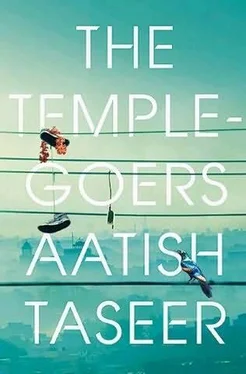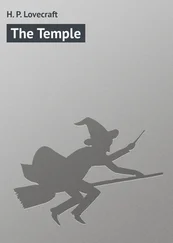Before he could answer, she ordered malai koftas, dal, paneer and butter naan, which she insisted on.
Because Aakash was not in the mood to talk, I began to ask Megha about her family’s attitude. It turned out that, apart from her brother, her other siblings had also had their suspicions about Aakash. She said, ‘The whole issue had died down. My siblings thought that I had given up Aakash because I’d stopped going to the gym. But twenty days back, when I started going again, they thought, ah, now she’s started to go to the gym again. Aakash must be pressurizing her into marrying him so that he can get our money. That’s when the trouble started again.’
‘Surely their attitude would be different if they knew you were already married?’
She liked this, and as if tickled by the logic of it, laughed out loud.
The food arrived and Aakash revived further. Apart from his mood, there seemed to be a genuine physical change in his condition as if related to blood sugar. He said he was going to get a doctor to look at it. ‘Ask Megha how much I ate yesterday,’ he said. ‘I ate some five-six times.’
This talk of Aakash’s health and hunger, as it had with the Begum of Sectorpur, brought out affection in Megha and excited a story. ‘One time, I went out with him,’ she said, ‘and he began to feel so hungry he couldn’t walk. He drank a milkshake that if you drank one sip of… so havy , and even then he wasn’t satisfied. He went home, and with his hands trembling, asked his mother for food. She brought out ghee on brad .’
At the mention of his mother Aakash took over the story in Hindi. ‘Then I dug in and ate,’ he said, ‘and only then did I feel behtar . But before that, man, you won’t believe. I was riding the bike and my hands were sliding off the handles.’
Seeing that Aakash was feeling stronger, I raised the subject of his marriage again. I said, more as joke, and because he had mentioned needing the help of the press before, that there should be a reality show on Indian TV in which couples that were in love, or secretly married, could confront their parents and in-laws on television.
Aakash looked scornfully at me. ‘Are you serious, man?’ he said mockingly.
‘Half serious.’
‘Half serious,’ he spat. ‘I know about television. I know what people will say. They’ll say he could have done it quietly but he wanted the fame.’ He slipped into role-playing, becoming many people at once. ‘For months,’ he said, transforming into the neighbours, ‘they’ll point to us and say, “Oh, there they go, the ones who went on TV to get the fame.” ’ A second later, he was the TV journalist: ‘ “Oh, you’re marrying for love, are you? So many girls in the world, how come you found this one from a rich family? Oh, and a healthy girl too? And you’re from a poor family? Could it be that you’re just marrying her for the money?” ’ His tongue flickered, scraping over his lips as he spoke. We watched in fascination.
I said, ‘Don’t get so worked up. There’s no reality show like this; it was just a joke.’
‘I know there isn’t,’ he replied, his words bristling. ‘That’s why I just touched on it and quickly dismissed it.’
I said, ‘TV should only be called in if there’s a threat to your or Megha’s life.’
‘Yes, but if I go to meet Megha’s family, there will be a threat to my life.’
‘Were you planning to? This is the first I’ve heard of it. If you go alone, you really are mad.’
Megha nodded sadly in agreement.
‘Take it from me now in writing,’ Aakash said. ‘The way it’s going to happen is this: in a month, there’ll be another suitor for Megha; her mother will try taking her to meet him; and then I will pressurize Megha to tell them and she will.’
Megha bit her lip nervously and looked at me. I shrugged my shoulders. Aakash looked viciously at us both.
‘Is your stomach full?’ Megha asked.
‘Isn’t it clear I’m full?’ Aakash answered without a trace of humour. ‘That’s why I’m talking like this now. My energy has returned.’
‘And aggression,’ I said.
He smiled and became gentler.
‘What can I do, man?’ he confessed. ‘Taking a lot of tension. This thing is constantly on my mind. I used to sleep till eleven on Sundays but now I wake up at five from worry. Thinking, thinking. I have many problems. It’s not just this thing. I have to think of my career. How I’m going to upgrade myself. I have to think of how I’ll take care of Megha. Fine, I can rent a flat in Sectorpur; she will stay there in the days when I’m working or she could be with my mother so that she won’t get bored on her own.’
Listening to this description, tender that it was, I felt sure that it would never become a reality. Something about Megha, her boisterousness, or perhaps her sheer size, defied any notion of her sitting alone at home in Sectorpur, or milling about Aakash’s tiny flat with her mother-in-law. And this mention of boredom, linked somehow to the solitude of the modern apartment, seemed to bring alive Megha’s resistance to any quiet sequestering in Sectorpur. As if also sensing the impossibility of living with Aakash’s family, she said snidely of his brother Amit, ‘And we know all about your brother and his wife.’
A tense moment passed between them.
‘Everyone has faults,’ Aakash snapped. ‘You do, sir probably does too, and so does he.’
Turning to me, Aakash said in English, ‘My sis-in-law is very sharp.’
‘And very money-minded,’ Megha added.
Aakash relaxed and said in English, ‘My brother sometimes says me, “Why are you worried? You have Megha.” Can you believe, man?’ Aakash exploded, and switching to Hindi, said, ‘ “And we count every little paisa, thinking, can we afford this, can we not? Let’s not buy it now; we’ll buy it next time.” ’
It was becoming afternoon when we left Mantra. The sun now shone on a different segment of Connaught Place. It showed me what I had not seen earlier: a single block, renovated, whitewashed, looking for the first time since independence how it was built to look. It was as hopeful a thing as I had ever seen, almost impossible to imagine, impossible to think of in the surrounding decay as the work of a brush and fresh paint. If it was so easy, why had it not been done before? Aakash explained that it was the first block to have been released from rent control. As soon as it had been, fresh life had poured into it.
We put Megha into a taxi headed for Sectorpur. Before waving her off, Aakash told her to be careful when driving into Sectorpur.
‘Why for?’ she asked.
‘There’s been an encounter,’ Aakash said, ‘with Muhammadans.’
‘Not Muhammadans, Aakash, terrorists. Not all Muhammadans are terrorists,’ I added prissily.
‘Fine,’ he replied, ‘but all the terrorists are Muhammadans.’
‘Same difference,’ Megha said from within the taxi. ‘Tell what happened, no?’
‘The policeman killed was a Sectorpur man. All I’m saying is just be careful in case there’s trouble.’
‘Tch, that’s nothing,’ Megha said jauntily. ‘Do I look like a Muhammadan to you?’
‘No, appu! Now hurry up, you’re causing a traffic jam.’
She was still laughing when the taxi drove away.
When she’d gone, Aakash asked me to drop him at Junglee. Driving back through the avenues, the canopies flaring and fading overhead, we passed the Human Rights Commission, the silver letters on its façade blazing in the light. Aakash pointed at it and smiled ironically. Then looking back into the boot of the car, he said with pride, ‘We got things from all the brands. Puma, Nike, Reebok.’
As I was dropping him off, he asked for eleven hundred rupees.
Читать дальше












